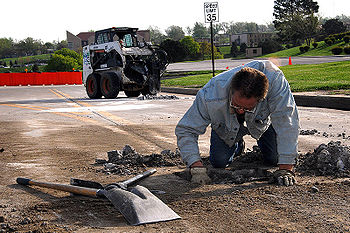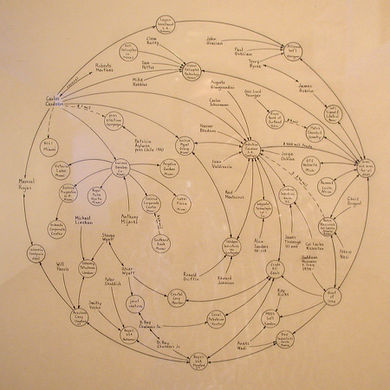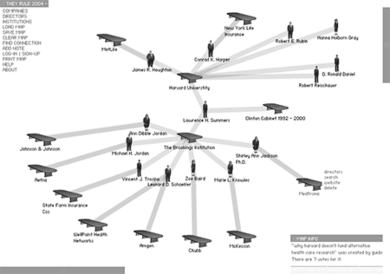Social economy: Difference between revisions
No edit summary |
No edit summary |
||
| Line 1: | Line 1: | ||
''Originally posted to the [http://groups.google.com/group/visiblegovernment-discuss/browse_thread/thread/209efd01b6b528f2# Visible Government mailing list] | ''Originally posted to the [http://groups.google.com/group/visiblegovernment-discuss/browse_thread/thread/209efd01b6b528f2# Visible Government mailing list] on the topic of "economic benefits of open data."'' | ||
My belief is that many of the most important benefits won't exactly be "economic" but will be more significantly transformative (though we won't always notice it — "the whole world turns upside down in ten years, but you turn upside down with it," Spider Robinson). | My belief is that many of the most important benefits won't exactly be "economic" but will be more significantly transformative (though we won't always notice it — "the whole world turns upside down in ten years, but you turn upside down with it," Spider Robinson). | ||
| Line 22: | Line 22: | ||
Which brings me to my third topic, and I'm sorry to run on. OpenCongress.org has a base of political players based on Semantic Mediawiki, for example http://www.opencongress.org/wiki/United_States_Democratic_Party | Which brings me to my third topic, and I'm sorry to run on. OpenCongress.org has a base of political players based on Semantic Mediawiki, for example http://www.opencongress.org/wiki/United_States_Democratic_Party | ||
<div style="text-align: center"> | <div style="text-align: center; min-width: 800px"> | ||
[[File:Lombardi1.jpg| | [[File:Lombardi1.jpg|390px|Marc Lombardi diagram of people and organizations connects responsibility]] | ||
[[File:TheyRule-450.gif| | [[File:TheyRule-450.gif|390px|Theyrule.net graph of people and organizations connects responsibility]] | ||
</div> | </div> | ||
Revision as of 19:02, 16 November 2010
Originally posted to the Visible Government mailing list on the topic of "economic benefits of open data."
My belief is that many of the most important benefits won't exactly be "economic" but will be more significantly transformative (though we won't always notice it — "the whole world turns upside down in ten years, but you turn upside down with it," Spider Robinson).
http://www.longwoods.com/audio-video/video/1/377 provides fascinating cues of how the economic service model of care doesn't scale to upcoming challenges, and top government advisors are recommending social media solutions to problems like knocking on senior's doors to make sure they're ok.
Projecting a bit, I'd like to see involvement change from "fixmystreet.com" to "letsfixourstreets.com." letsfixourstreets could start with local people organizing to fix potholes in their alleys. Material sourced openly, an experienced volunteer from across town, a few people on the block spending Saturday afternoon lifting a shovel instead of going to the gym, fixing a problem that would otherwise get tied up in red tape and exaggerated costs.
As it become more formalized and trustworthy, "the government" could become more of a certifying body and reliable transparent bookkeeper so support this efficient neighbourly projects.
There are immense challenges in this idea. I'm very much for benefits of organized government, and must acknowledge the benefits of bodies like unions, where these changes would be highly disruptive. And, of course, I'm living in a techno-utopian bubble which the majority of people wouldn't relate to.
Still, I can't help think many elements of our current economy and civic models don't make much sense after so many generations of incredible development and world-wide effects, largely between the poles of Silicon Valley possibilities and China economies of scale. And often feel we're heading toward a "survival of the bureaucratiest" dystopia.
There are clear signs of this movement in what's being called "Collaborative Consumption." Creating trust to do things like rent personal vehicles on sliding scales based on the quality of experience.
I do understand "economic benefits" make open data easier to understand by many players. But if you're not appealing to a government or corporate agency, it's interesting to look past extant models.
It's also worth talking about personal energy. Many people have great ideas, but keeping them going in a highly competitive world (even amongst socially focused developers) isn't easy. This is one reason I'm so keen on the Semantic Mediawiki combination. Compared to completely custom software bases (which are sometimes necessary), it makes it easier to track, understand, and participate in a base's development. It's based on Wikipedia, which is a tremendous force on its own. Add to the mix structured data and interactive views (not to mention the developing RDF exchange layer) and a lot of great systems can be created using open data sources and SMW. http://canbudget.zooid.org/wiki/Main_Page is one I meant to share that was put together as a demonstration based on G8/G20 data as discussed on this list.
Which brings me to my third topic, and I'm sorry to run on. OpenCongress.org has a base of political players based on Semantic Mediawiki, for example http://www.opencongress.org/wiki/United_States_Democratic_Party
My feeling is it's timely and appropriate to create shared public databases for these sort for public participants — public and private companies, government units and representatives, and individual people when they have public interaction. Mark Lombardi and theyrule.net explored these ideas, and my feeling is, past the unnecessary conspiratorial air, they will generate constant public interest and have great value in opening up relevant information, and also help to connect efforts in a "wetry.org" way. Canbudget helps to explore this in pages that add information and costs on pages like http://canbudget.zooid.org/wiki/2010/G20 Now I'm working on tools to discover relationships and present them effectively.


